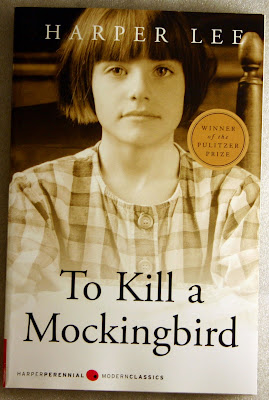 Have you ever noticed how children book's or literature actually teaches us more lessons than probably any other experiences we might have. For example - In the book "To kill a mockingbird" - the narrator is a little girl who has been reading ever since she was born and the way she thinks is depicted through out the narration. Its amazing how a kid who does not even know the meaning of half the swear words that she uses at times teaches us how inncocent childhood is and certainly if we think of our big problems from the point of view of such little kids not only they seem easy but also their solution seem even easier.
Have you ever noticed how children book's or literature actually teaches us more lessons than probably any other experiences we might have. For example - In the book "To kill a mockingbird" - the narrator is a little girl who has been reading ever since she was born and the way she thinks is depicted through out the narration. Its amazing how a kid who does not even know the meaning of half the swear words that she uses at times teaches us how inncocent childhood is and certainly if we think of our big problems from the point of view of such little kids not only they seem easy but also their solution seem even easier.
The story revolves around Scout (the little girl) and her brother, motivated by a summer friend of theirs,Dill,trying to get a neighbour of theirs 'Boo Radley' aka Mr Arthur Radley out of his home . Their various plans and plots to do so. How the circumstances around them teach them a lesson about the kind of society they are in that they feel at a point of time that may be the society is such a ill-rotten place to live in that Boo Radley is satisfied without being a part of it.

Its hilarious when Scout enters First grade and on her first day to school she is punished for being able to read. Her teacher asks her to tell her father that he has been teaching her all wrong, and that he should stop. Little Scout, so worried after her first day, that she won't be able to read anymore with her father, says to her brother very innocently, "that lady says Atticus's has been teaching me to read wrongfully, and for him to stop it".
(Atticus being the name of their father)
 Some people in the novel do just sit still. But a few decide to do what they can to take action on the side of justice and equality, even though they think it’s mostly hopeless. To Kill a Mockingbird doesn’t sugarcoat the results (minor spoiler: the book does not end with African-Americans and whites holding hands and singing. It does, however, suggest that doing something to make life a little more fair, even if it seems like it’s not having any effect, is still worthwhile, and what’s more, admirable.
Some people in the novel do just sit still. But a few decide to do what they can to take action on the side of justice and equality, even though they think it’s mostly hopeless. To Kill a Mockingbird doesn’t sugarcoat the results (minor spoiler: the book does not end with African-Americans and whites holding hands and singing. It does, however, suggest that doing something to make life a little more fair, even if it seems like it’s not having any effect, is still worthwhile, and what’s more, admirable.Through out the book their have been major issues seen by minor eyes as witnesses and described to us as daily events that really ought to appeal to how much we miss by being a grown-up.
